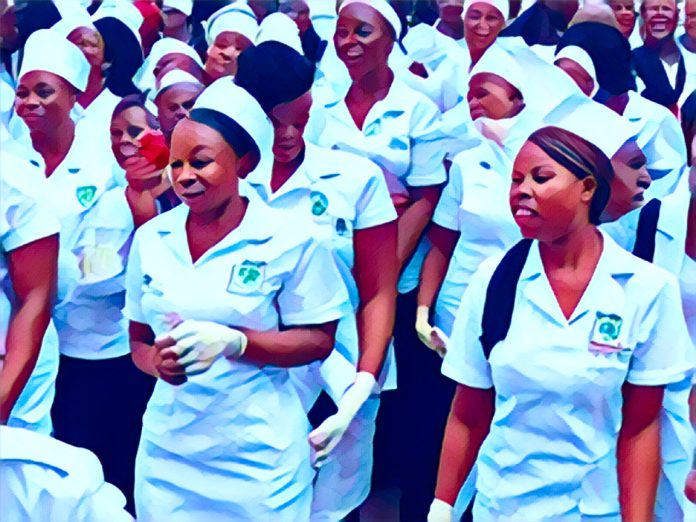KEY POINTS
-
Katsina deploys volunteers as nurses’ strike escalates.
-
Doctors reduce services, support nurses’ demands.
-
Patients flood private clinics or return home untreated.
Healthcare services across Nigeria continue to unravel under the weight of a nationwide warning strike by nurses and midwives. In Katsina State, where public hospitals are already overstretched, local associations have turned to volunteers to fix the widening gap in care.
The Katsina Hospital Friends Association is mobilising across all 34 local government areas to provide basic first aid, food, water, and other support services to patients left stranded by the strike.
Katsina mobilises volunteers to fill nurses’ vacuum
Bilya Sanda, chairman of the association, said volunteer teams from religious and humanitarian groups—including Jama’atu Nasril Islam and the Nigerian Red Cross—have been stationed at hospitals like the General Hospital Katsina. The volunteers offer basic support to ease the strain on the few medical staff left.
He emphasised the need for unity and service, saying the association would continue to provide aid throughout the strike period. The group has also arranged logistics for volunteers, including meals and water.
Meanwhile, the National Association of Nigerian Nurses and Midwives (NANNM) insists its strike is justified. In Katsina, a monitoring task force is making rounds to ensure full compliance. NANNM’s state chairman, Nura Mu’azu, warned members that anyone who breaks ranks will face sanctions.
Doctors scale back support for overstretched hospitals
The Katsina chapter of the Nigerian Medical Association has thrown its weight behind the nurses. State chairman, Dr. Muhammadu Sani, said doctors are now attending only to critical cases, with no new patient admissions allowed.
“Healthcare is teamwork,” Sani told our correspondent. “We support NANNM’s demands. No one is trying to undermine anyone.” He added that stable patients had been discharged while overstretched doctors struggle to maintain emergency services.
The situation is mirrored across northern hospitals. According to Punch, in Birnin Kebbi, wards at the Federal Teaching Hospital were nearly deserted. Staff there described dire conditions, with many nurses citing poor working environments and a lack of government support.
Nurses’ strike forces patients to seek alternatives
In Kano, patients at Dala Orthopaedic Hospital—particularly those from outside the state—have been discharged prematurely or left voluntarily to seek care elsewhere. At the National Ear Care Centre in Kaduna, patients were seen languishing without basic care.
One of them, Peace Agadama, suffering from acute sinusitis, said she had no nurse to help with routine tasks. “There’s no one to help me use the restroom,” she said. “I’ve had my cannula changed four times in two days. My hands are swollen.”
Across the hospitals visited, administrators and patients alike called on the federal government to act quickly and address nurses’ grievances before the warning strike evolves into a full-blown shutdown.



